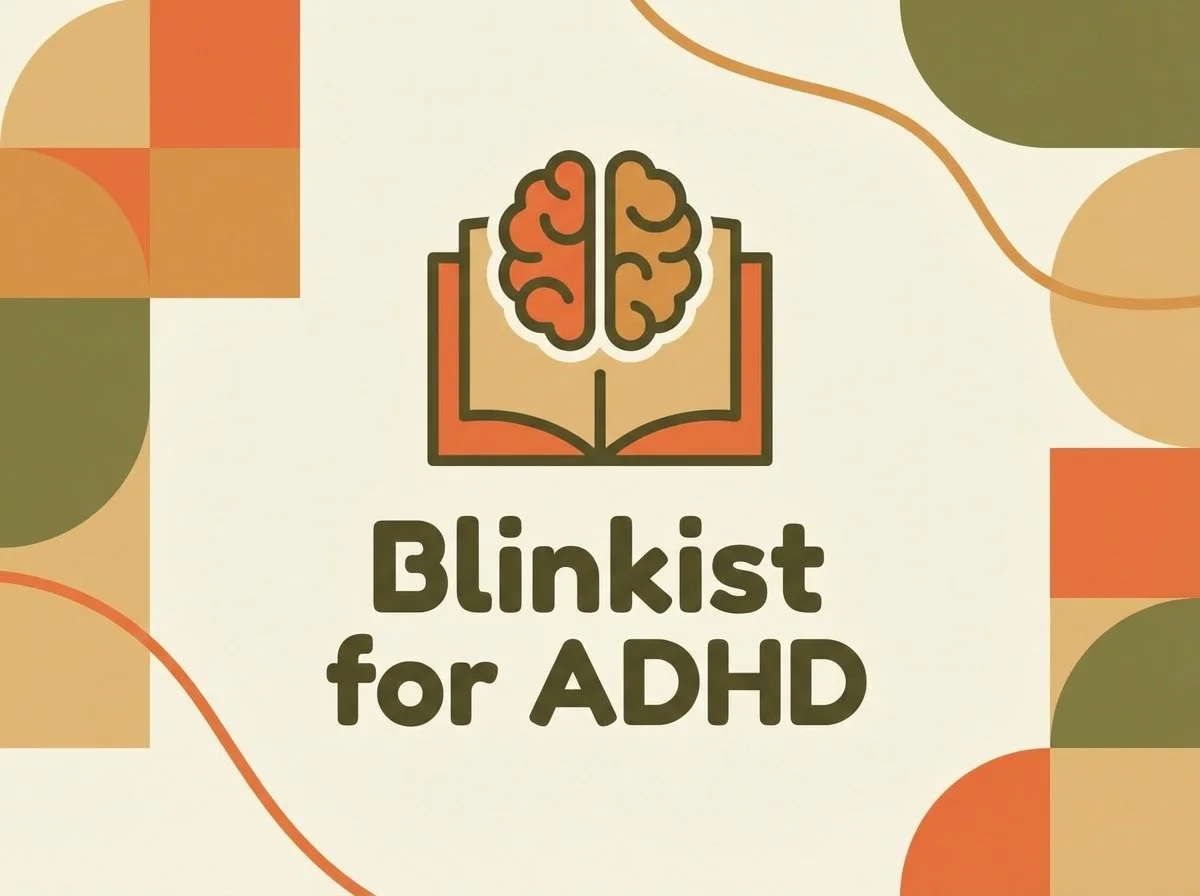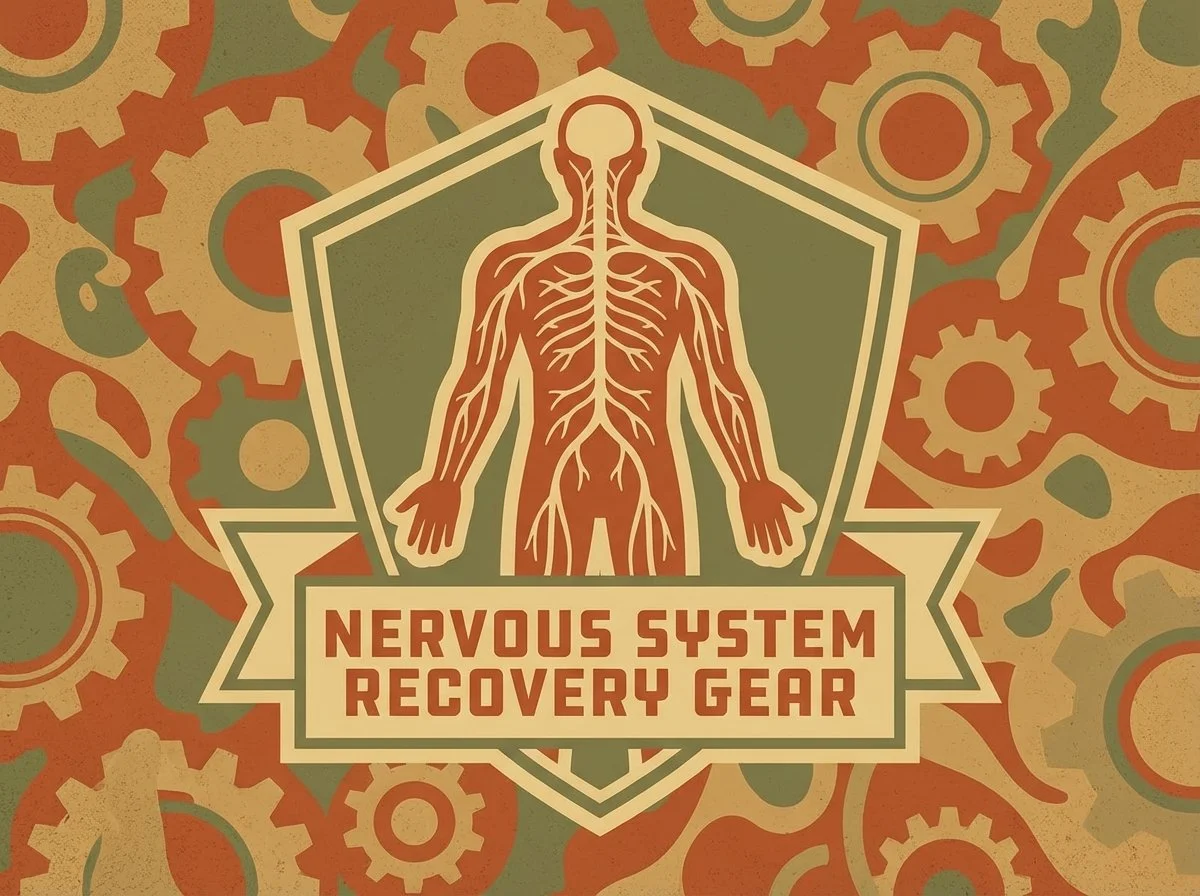What Great Supervision Looks Like: Signs You're Getting the Support You Need
About half of psychologists felt burned out in 2022, matching similar levels from previous years - 41% in 2020 and 48% in 2021. These numbers show why supervision matters for professionals who work in high-stress environments. My experience with different supervisors over the years has taught me how proper support can transform your work life.
Quality supervision goes beyond just overseeing work - it protects and improves practice standards while helping you process job challenges. Research proves that professionals who work with struggling individuals face less burnout risk when they receive proper supervision. Good supervision isn't optional - it keeps us healthy and effective at work. Regular supervision sessions need protected time and private space to help professionals succeed.
This piece explores what excellent supervision looks like and how you'll know you're getting the right support. You might be dealing with poor supervision now or just want to learn more about supervision's role in your growth. Either way, you'll discover what to look for and how to ask for better support.
What is great supervision and why it matters
Quality supervision goes beyond simple oversight. At its core, supervision is "an accountable, two-way process, which supports, motivates, and enables the development of good practice for individual social care workers". This professional relationship builds a foundation that helps people grow, reflect, and stay resilient - especially in workplaces with high emotional demands.
Defining effective supervision
Supervision works through three main functions that come together to support professionals:
Administrative function: Manages tasks and performance, promotes good work standards, and ensures everyone follows organizational policies
Educational function: Builds knowledge and skills while encouraging reflection to discover new work approaches
Supportive function: Helps professionals handle emotional and relational aspects of their work challenges
Research shows ten key traits that make supervision work well. Trust and respect between both parties stand out as the most important. Professionals should have a say in choosing their supervisor to ensure they work well together. Both sides need to understand why they're meeting and focus on building knowledge and skills.
Regular sessions make a big difference - supervision should happen based on what each person needs, with extra support ready during tough times. The employer's role is to protect meeting time, train supervisors, and create private spaces where meaningful supervision can happen.
The importance of supervision in high-stress roles
Supervision quality directly links to how well professionals feel at work. Studies show that as supervision gets worse, burnout risk goes up by a lot. This matters because poor supervisor support leads to the biggest risk of workplace health and wellbeing problems.
People in emotionally demanding jobs find supervision gives them "pithead time" - a chance to deal with work stress before heading home. A private space to talk about challenges helps prevent compassion fatigue and emotional exhaustion that often cause burnout.
Good supervision helps the whole organization, not just individuals. It makes communication, teamwork, and service quality better. Regular meetings build stronger work relationships and create an environment where people can be honest, think critically, and keep learning.
Supervision proves its worth during really stressful times. Take the COVID-19 pandemic - supervisors helped reduce negative effects through feedback, team support, and inclusive leadership.
Research backs this up. Supervisor support leads to less burnout, fewer people wanting to quit, and happier employees. Workers who can't count on their supervisor's help when problems come up face much higher health risks, with adjusted odds ratios reaching up to 3.8 in some studies.
These findings show that good supervision isn't just nice to have - it's vital for keeping professionals healthy, especially in emotionally demanding fields. Today's complex work environments need quality supervision to give stability during tough times and guidance for growth.
8 signs you're getting the support you need
Quality supervision might be sort of hard to get one's arms around if you lack previous experience. My research and expert discussions helped me identify eight clear signs that show your supervisor gives you the support you need.
1. You feel heard and respected
Trust and respect are the foundations of a supportive relationship with your supervisor. Your supervisor listens with empathy, which research links directly to employee engagement at work. Good supervisors ask for your input before decisions and show real interest in your viewpoint. This creates a space where you can share challenges without judgment.
2. You receive timely and useful feedback
Quality supervision depends on constructive feedback. Research shows that employees who get meaningful weekly feedback stay fully engaged 80% of the time. Your supervisor gives specific, useful feedback about your actions rather than personality. They mix praise with suggestions to improve, which helps you grow while celebrating your wins.
3. Your supervisor helps you grow professionally
The best supervisors do more than track results—they bring out the best in their team. A good supervisor becomes your mentor and coach who spots chances to help you develop. They spot your talents and match them with team needs. You'll notice they give you challenging tasks and provide resources that support your learning experience.
4. You can discuss emotional challenges safely
A good supervisor creates a safe space to work through tough cases and emotional situations. This support prevents burnout because you feel understood. They help you understand that uncertainty comes with the job, especially during difficult times. This safety lets you talk about work stress before it affects your personal life.
5. Your sessions are regular and consistent
Good supervision happens on a steady schedule that fits your needs, plus extra support when things get tough. Studies suggest meeting less than every two weeks might not give enough support. Your supervisor makes these meetings their priority by setting aside dedicated time, which shows they value your growth.
6. You're encouraged to reflect and self-assess
Self-reflection helps you grow professionally. Good supervisors ask you to assess your work and find areas to improve. They use questions that make you think deeper about your work instead of just giving answers. This helps you learn self-assessment skills that benefit your entire career.
7. You feel more confident after each session
Each good supervision session leaves you feeling more capable and ready to tackle your work. Great supervisors build your confidence by focusing on wins, not just problems. They help you see patterns of success and understand how you learn and overcome challenges. You leave these meetings feeling energized and motivated.
8. Your supervisor models good self-care
The best supervisors show the value of self-care through their actions. They set healthy limits, take breaks, and talk openly about balancing work and life. Their example gives you permission to take care of yourself. This shows that self-care isn't optional—it's part of being professional and ethical.
These eight signs show you're getting supervision that helps you succeed. If you see these patterns in your relationship with your supervisor, you likely have the support that research proves prevents burnout and helps career growth.
How supervision helps prevent burnout
Burnout poses a major risk in helping professions. Recent data shows almost half of all psychologists felt burned out in 2022. These numbers stayed high in previous years too - 41% in 2020 and 48% in 2021. This makes it vital to understand how good supervision protects professionals in high-stress jobs from burning out.
Understanding emotional exhaustion and detachment
Burnout shows up through three key elements: emotional exhaustion, depersonalization, and reduced personal accomplishment. Emotional exhaustion stands out as the main feature. It creates ongoing physical and emotional depletion from too many work demands and heavy workloads. Professionals describe feeling "drained" with "nothing left in the tank" by the end of their day.
As people burn out, they become cynical and mentally distant from their work. This depersonalization acts as a defense mechanism. People start to disconnect from their clients or patients, which reduces their empathy and emotional connection. Research proves this detachment hurts service quality. Affected professionals can't focus well, get less done, and make more medical mistakes.
Burnout goes beyond simple workplace tiredness. It's a serious condition that can trigger depression, anxiety, and physical health problems if left untreated. This explains why supervision plays such a big part in preventing it.
How supervision provides emotional release
Quality supervision gives professionals a safe outlet to process others' trauma and suffering. Behind their calm exterior, helping professionals absorb heavy emotional content. Without proper processing, this builds up into a "quiet burden of unacknowledged emotion".
Supervision creates a protected space for emotional release. It's not just about complaining - it lets professionals voice buried emotions so they can return to work "lighter, clearer, and more connected to themselves". This emotional release helps prevent negative feelings from piling up and causing burnout.
Research backs this up. Better supervision quality links directly to lower burnout risk. Professionals who get high-quality supervision are twice as likely to avoid burnout compared to those without such support.
The role of support in long-term resilience
Regular supervision builds lasting professional resilience. Building resilience takes ongoing commitment - it's not a one-time achievement but a "dynamic, fluid process".
Good supervisors teach professionals how to manage workplace stress through self-regulation and coping strategies. Academic settings provide a great example. Supervisors who handle emotions well while giving feedback and guidance help keep their supervisees motivated and mentally healthy.
Supervision's supportive role tackles emotional challenges head-on. Poor quality or missing supervision increases the risk of job dissatisfaction. Regular sessions ensure problems get addressed early before they turn into burnout.
Great supervisors show healthy work-life boundaries and self-care habits. This proves that wellbeing matters both personally and professionally. Their example gives professionals permission to prioritize their own health - a key factor in staying well long-term.
Quality supervision makes a big difference in preventing burnout. Studies show:
Teams with strong leaders had lower burnout rates and fewer people wanting to quit
Supportive supervision improves job satisfaction, reduces stress, and enhances service quality
Regular check-ins decrease employee burnout and job turnover
Through consistent, quality supervision, professionals develop technical skills plus the emotional intelligence and self-awareness needed to thrive in high-stress jobs.
The three core functions of good supervision
Three distinct yet interconnected functions build effective supervision and create a detailed support system. These functions explain why is supervision important to professional growth and organizational success. The functions overlap to create an all-encompassing approach that addresses different aspects of professional practice.
Administrative: managing tasks and performance
The administrative function acts as supervision's foundation and operates like management. This aspect implements methods that help professionals deliver effective services while following organizational policies and needs.
Administrative supervisors take on several crucial responsibilities:
They assign job duties and set workload priorities to complete tasks on time
They evaluate staff performance and give improvement feedback
They make sure employees follow organizational policies and take disciplinary action as needed
Administrative supervision goes beyond simple oversight. Supervisors manage team workflow, create schedules, delegate tasks, and share goals. They act as bridges between their team and upper management by reporting performance, productivity levels, and progress toward organizational goals.
Educational: developing skills and knowledge
Educational supervision focuses on professional concerns and specific cases. It helps supervisees understand their professional philosophy and develop self-awareness. Staff development and training needs related to specific caseloads become the main goal.
Educational supervision guides professionals through assessment techniques, intervention strategies, ethical issue resolution, and service evaluation. Supervisors spot skill gaps and knowledge gaps, then help create learning plans to address these areas.
The educational supervisor's role shapes curriculum development and implementation. They collaborate with professionals to arrange standards, goals, and client needs. They boost practice effectiveness throughout the organization by monitoring implementation and reviewing performance data.
Supportive: addressing emotional and relational needs
Supportive supervision reduces job stress that affects work performance. It creates nurturing conditions that lead to success and encourage self-efficacy. This function becomes vital especially when you have increasing professional challenges—complex client problems, tough work environments, heavy workloads, and emotionally draining situations.
Supportive supervision builds a climate of safety and trust where professionals develop their identity. Supervisors provide support for emotional challenges, monitor wellbeing, and ensure resources are available for emerging issues.
Research shows that supervisor-supported practices offer chances to discuss emotionally demanding cases, give quick feedback, allow "venting," rotate challenging tasks, and share strategies for handling high emotional demands. Supportive supervisors stay available when their team's members need to express feelings or frustrations during high-pressure moments.
The blend of administrative, educational, and supportive functions creates competent, ethical, and professional workers. All the same, finding the right balance takes work. Some supervisors find it hard to keep assessments from dominating supervisory meetings. This highlights why supervisors must address all three areas with purpose.
These three core functions help explain why is supervision important and offer a framework to implement effective supervision in any professional setting. Good supervision creates an environment where both people and organizations thrive when these functions work together smoothly.
What makes a supervisor effective
Great supervision starts with specific skills that give supervisors the ability to support their teams effectively. When we take a closer look at what separates effective supervisors from average ones, we see patterns of behavior and competencies that lead to positive outcomes.
Strong communication and listening skills
Communication is the foundation of successful supervision. Studies show that 86% of employees and executives point to ineffective communication as the primary reason for workplace failures. Outstanding supervisors do more than just share information. They practice active-empathetic listening, which improves work engagement and boosts employees' emotional energy. This listening-focused approach requires full attention to the speaker, understanding both verbal and non-verbal signals, and thoughtful responses.
The best supervisors build trust through communication. Research shows that trust creates the foundation for positive, lasting relationships that help teams perform their best. Supervisors who keep communication channels open create an environment where team members feel valued and involved.
Clear communication is a vital element of effective leadership. Great supervisors share both wins and setbacks, opportunities and worries with their staff when appropriate. This honest approach builds psychological safety, and team members can express themselves without fear of judgment.
Cultural awareness and empathy
Among communication skills, cultural awareness plays an increasingly important role in effective supervision. Outstanding supervisors understand their own cultural values and priorities while learning about their team members' backgrounds. This self-awareness helps prevent biases from affecting how they lead culturally diverse teams.
Supervisors who understand different cultures create safe, inclusive spaces where everyone feels respected. They know that accepting diversity means more than noticing differences—it means promoting environments where people feel understood and supported. This approach needs constant self-reflection and readiness to tackle power imbalances based on race, gender, or socioeconomic status.
Empathy works hand in hand with cultural awareness. Studies show that empathetic leadership leads to better mental health, higher morale, and more breakthroughs from team members. Empathetic supervisors understand their team's experiences and offer emotional support that creates a safe environment.
Knowing how to give and receive feedback
The third essential part of effective supervision focuses on feedback—both giving and receiving it constructively. Research proves that supervisor feedback changes subordinates' attitudes and behaviors, consistently improving performance.
Budget-friendly feedback approaches include:
Starting with positives before addressing improvements
Using specific examples instead of general statements
Focusing on behaviors rather than personality traits
Encouraging dialog and solution ownership
Giving immediate feedback instead of waiting
Therefore, great supervisors see feedback as a two-way conversation. They ask for input about their own performance and welcome constructive criticism. This openness shows commitment to improvement and creates a workplace where feedback becomes natural.
The best supervisors know their main goal is helping others succeed. They lead through influence rather than authority, focusing on solving problems and building successful teams. This servant-leadership style shows that a supervisor's success comes from their team's growth and achievements, not personal accomplishments.
When supervision goes wrong: red flags to watch for
Quality supervision offers clear benefits, yet many professionals face the opposite reality. Research shows supervision can become counterproductive and sometimes harmful. You can address these issues before they affect your wellbeing by spotting warning signs early.
Sessions feel rushed or inconsistent
Meetings that get canceled, rescheduled, or cut short point to problematic supervision. Studies show that many practitioners deal with laxness in supervision time and structure. Your supervisor might not understand why is supervision important if they're always "too busy" to meet or treat supervision as an afterthought.
Poor availability creates barriers that prevent effective supervision. Your safety and your clients' well-being could be at risk when supervisors stay unreachable for days or weeks during challenging cases. Supervisors who show up late don't respect your time and set a poor example of professional behavior.
You feel judged or unsafe
Trust is the life-blood of good supervision. Research shows this trust is sometimes lacking. The supervisory relationship breaks down when you can't be open with your supervisor because you fear they'll use information against you.
Supervisees often hide information when they don't feel safe. They carefully weigh the risks before sharing, not just from fear of judgment. People start to question their supervisor's advice and become self-critical in unhelpful relationships. This creates a dangerous pattern where mistakes stay hidden and client care suffers.
There's no clear structure or purpose
Sessions without an agenda or direction raise a red flag. Meetings can turn into gossip sessions without proper structure. This shows a lack of respect for everyone's time and doesn't help professional development.
Supervision often becomes a mere "tick box" exercise—more about paperwork than growth. Some supervisors don't know professional guidelines or ethical standards well enough. They create their own approaches that lack quality and consistency.
My career experience shows that supervision without purpose tends to focus on administrative tasks. This shift away from education and support works against the importance of supervision in preventing burnout and supporting growth.
You can tackle supervision challenges head-on by knowing these warning signs. Good supervision helps you grow, and you deserve nothing less than quality guidance from your supervisor.
How to improve your supervision experience
Being active in your supervision relationship makes a huge difference in your professional development. Active participation will give you exactly what you need from these important professional discussions.
Setting clear goals with your supervisor
You need to set specific objectives for your professional experience. Research shows that clear, achievable goals provide vital direction and focus for your professional development. Before you talk about goals with your supervisor, take time to reflect on your current strengths, transferable skills, and most important accomplishments in your role.
Your goals should benefit everyone—you, your team, and the organization. Ask yourself three key questions: Are my goals realistic for my situation? Will I have the resources and support I need? Do these goals fit with my supervisor's vision for my role? This shared understanding makes supervision more productive.
Preparing for sessions with notes or questions
Coming unprepared to supervision wastes everyone's time. You should develop an agenda that has:
Recent situations that stood out or challenged you
Specific questions about cases or professional dilemmas
Areas where you feel stuck or need guidance
Successes you want to build upon
Share this agenda 72 hours before the meeting. This gives your supervisor time to prepare thoughtful responses. Early sharing shows professionalism and leads to better conversations. Make sure to take notes during sessions about key insights and action items for later reference.
Requesting feedback and follow-up
Feedback helps you grow professionally, so ask for it instead of waiting. After getting feedback, ask questions to fully understand how you can improve. These questions don't challenge authority—they show you care about growing professionally.
Take time after each session to think about what you discussed. A supervision journal helps you track insights, questions for future sessions, and progress on previous action items. Your notes create continuity between meetings and help you see your development over time.
Feedback is a chance to learn, not criticism. People who welcome feedback find blind spots in their work they might miss otherwise. This leads to better self-awareness and professional skills.
Building a supervision-friendly workplace
Quality supervision at work needs intentional effort from everyone in the organization. Good peer relationships and leadership practices are the foundations of a culture that values supervision as a must-have rather than a nice-to-have.
Encouraging peer support and mentoring
Peer mentoring programs add powerful value to traditional supervision structures. Research shows these programs substantially increase how engaged and committed employees are. People learn better from their peers because they share personal experiences that formal programs might miss.
The program needs these elements to work:
A committee with members from every part of your organization
A program facilitator who oversees and tracks success
Orientation sessions that help supervisors understand the program
Clear recruitment processes to market the program to staff
Training supervisors across departments
HR professionals believe mentoring boosts organizational performance - about 67% agree. Many organizations still promote top performers without proper leadership training. New supervisors need training right before or during their promotion, especially when you have to manage people.
The training should teach practical skills like coaching, handling conflicts, and emotional intelligence. New supervisors also need ongoing support through experienced mentors and chances to meet other managers.
Making supervision a leadership priority
Good supervision affects everything - from how happy employees are at work to how long they stay and what they achieve. Leadership must commit to make this happen.
Companies often pick honest and responsible high achievers as managers without thinking about their people skills. They should instead look for managers who build environments where employees feel valued and treated fairly.
Supervision needs to become part of the organization's DNA through clear policies, dedicated time, and resources. The workplace thrives when leaders show that supervision matters as much as any other business priority.
Conclusion
Quality supervision is the life-blood of professional success and wellbeing, particularly for people in high-stress environments. This article explores how good supervision protects against burnout and encourages growth and resilience. Research shows that supportive supervision associates with lower burnout rates, better job satisfaction, and improved client outcomes.
Recognizing signs of great supervision strengthens our ability to identify proper support. A healthy supervisory relationship builds on specific indicators. These include active listening, constructive feedback, growth opportunities, safe spaces for emotional discussions, and regular meeting schedules. These simple elements affect our professional path and mental health by a lot.
Administrative, educational, and supportive functions combine to create a complete supervision experience. This balanced structure manages tasks while building skills and supporting emotional health. Supervision becomes incomplete and might not work without all three components.
Warning signs like rushed meetings, critical attitudes, or poor structure should push us to promote better support. We deserve proper guidance instead of accepting poor supervision. Setting clear goals, session preparation, and asking for specific feedback makes us active partners in professional growth.
Companies have a significant role in creating environments where supervision succeeds. Peer mentoring initiatives, supervisor training, and committed leadership build cultures that value professional support. Good supervision helps everyone. Professionals become more resilient and grow while organizations keep more employees and deliver better service.
Look at your next supervision session. Check if it offers the supportive, growth-focused experience described here. You might need to start making changes if it doesn't measure up. Remember, quality supervision makes you a better professional and helps build a lasting career without burning out. Your success depends on it.
Key Takeaways
Quality supervision serves as a critical shield against burnout while fostering professional growth, especially in high-stress environments where nearly half of professionals report feeling burned out.
• Recognize the 8 signs of effective supervision: feeling heard and respected, receiving timely feedback, professional growth support, emotional safety, consistent sessions, reflection encouragement, increased confidence, and supervisor self-care modeling.
• Understand supervision's three core functions: administrative (task management), educational (skill development), and supportive (emotional wellbeing) - all three must work together for comprehensive professional support.
• Take active ownership of your supervision experience: set clear goals, prepare with notes and questions, request specific feedback, and advocate for the quality support you deserve rather than accepting inadequate guidance.
• Watch for red flags that signal poor supervision: rushed or inconsistent sessions, feeling judged or unsafe, and lack of clear structure or purpose - these warning signs can harm both your wellbeing and professional development.
• Champion supervision at the organizational level: effective supervision requires leadership commitment, supervisor training, peer mentoring programs, and dedicated time and resources to create a culture where professional support thrives.
The research is clear: quality supervision doesn't just prevent burnout - it creates resilient professionals who can sustain meaningful careers while delivering better outcomes for those they serve.
FAQs
Q1. What are the key signs of effective supervision? Effective supervision is characterized by feeling heard and respected, receiving timely feedback, having opportunities for professional growth, being able to discuss emotional challenges safely, and having regular, consistent sessions. Other signs include being encouraged to reflect, feeling more confident after sessions, and having a supervisor who models good self-care.
Q2. How does supervision help prevent burnout? Supervision helps prevent burnout by providing a safe space for emotional release, offering support in managing workplace stressors, and building long-term professional resilience. It allows professionals to process difficult cases and emotions before they accumulate, while also developing coping strategies and maintaining work-life balance.
Q3. What are the three core functions of good supervision? The three core functions of good supervision are administrative (managing tasks and performance), educational (developing skills and knowledge), and supportive (addressing emotional and relational needs). These functions work together to create a comprehensive support system for professionals.
Q4. How can I improve my supervision experience? To improve your supervision experience, set clear goals with your supervisor, prepare for sessions with notes or questions, and actively request feedback. Take an active role in your professional development by reflecting on your needs, documenting insights, and following up on action items discussed during sessions.
Q5. What should I do if I'm not getting adequate supervision? If you're not receiving adequate supervision, first identify the specific issues (e.g., rushed sessions, feeling judged, lack of structure). Then, communicate your concerns to your supervisor or HR department. If the situation doesn't improve, consider seeking additional mentorship or advocating for organizational changes to prioritize effective supervision practices.
If you are interested in working with one of the supervisors at VitalMinds. Click the link below to get started.









